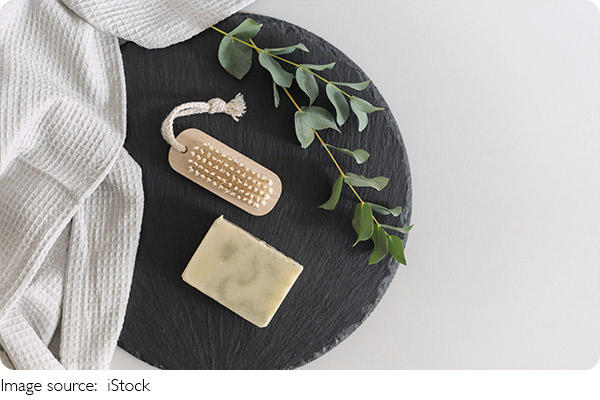The Art Of Cleansing

Both handmade soaps and soaps serve as body-cleansing products.
There exist significant distinctions between the two in terms of their production process, ingredients, texture, aroma, and their impact on the skin.
1. Production Process
Handmade Soap:
Handmade soap is crafted manually, typically by a skilled soap artisan. The process of creating handmade soap involves the careful selection of raw materials, the blending of ingredients, processing, curing, and ultimately cutting.
This procedure usually excludes chemically synthesized components such as sodium sulfate or artificial fragrances. Crafting handmade soaps is often time-intensive and skill-demanding, hence they generally incur a higher production cost.
Long-term use of nail polish carries some risks.
Jewelry, a symbol of personal taste and emotions, demands proper care to preserve its beauty and value.
Unlocking beauty involves a holistic journey, merging skincare, makeup, nutrition, and lifestyle for a radiant and self-confident you.
Don’t underestimate those little buttons, they may become the shining star in your fashion journey.
The art of coloring handmade soaps: techniques and tips.
Many types of earrings vary in material, meaning, purpose, age, and style.
Soap:
Soaps, on the other hand, are industrially manufactured soaps, usually mass-produced. The process of creating soaps involves large-scale mixing and production, which often entails the incorporation of chemically synthesized ingredients such as sodium sulfate and artificial fragrances.
This mode of production is typically more efficient but can result in soaps containing ingredients less amicable to the skin.
2. Ingredients
Handmade Soap:
Handmade soaps typically consist of natural ingredients, such as vegetable oils, plant-based fats, alkaline solutions (like sodium hydroxide or potassium hydroxide), and natural fragrances.
These ingredients predominantly exclude chemically synthesized additives, rendering handmade soaps the purer and more natural option.
Soap:
Soaps usually incorporate some chemically synthesized components to enhance lather, fragrance, and shelf life.
These ingredients may include sodium sulfate, artificial flavors, preservatives, and other additives. Although these components are not inherently detrimental to the skin, they may induce skin irritation or discomfort.
3. Texture
Handmade Soap:
Handmade soap typically boasts a softer and more moisturizing texture compared to soap. These soaps are often rich in vegetable oils and fats, aiding in maintaining the skin's moisture balance and leaving it feeling soft and hydrated.
Soap:
Soaps usually exhibit a firmer and more uniform texture. Their manufacturing frequently involves additional processing steps to ensure consistency and durability. However, this can result in soaps that are comparatively less moisturizing.

4. Aroma
Handmade Soap:
Handmade soaps often utilize natural fragrances, such as essential oils or plant extracts, to impart their scents. These natural aromatics offer a diverse array of fragrances, such as lavender, tea tree, and orange blossom.
These fragrances not only bestow handmade soaps with pleasant scents but may also carry additional skincare benefits.
Soap:
Soaps commonly employ artificial fragrances for scent enhancement. These fragrances are often chemically synthesized, mimicking natural scents but lacking the same skincare benefits. Furthermore, individuals sensitive to artificial fragrances may experience adverse reactions when using soap.
5. Effect on Skin
Handmade Soap:
Due to their natural ingredients, handmade soaps are generally gentler on the skin. They are less likely to strip the skin of its natural protective layer and may prove beneficial for specific skin conditions, such as dry, sensitive, or oily skin.
Soap:
Soap may exert adverse effects on the skin due to the presence of synthetic ingredients. For instance, sodium sulfate possesses potent grease-removing properties and can lead to skin dryness. Additionally, artificial fragrances and other additives may incite skin allergies or irritation.
In conclusion, numerous pivotal differences delineate handmade soap from soap, encompassing the production process, ingredient composition, texture, aroma, and their respective influences on the skin.
While both types of soap offer unique advantages and applications, many individuals gravitate toward handmade soaps for their reputation as a more natural, gentler, and moisturizing choice, as well as their eco-friendliness.
Ultimately, your selection should align with your personal preferences and skin requirements, with a steadfast emphasis on choosing products that align with your values and needs.

 · Fashion Team
· Fashion Team